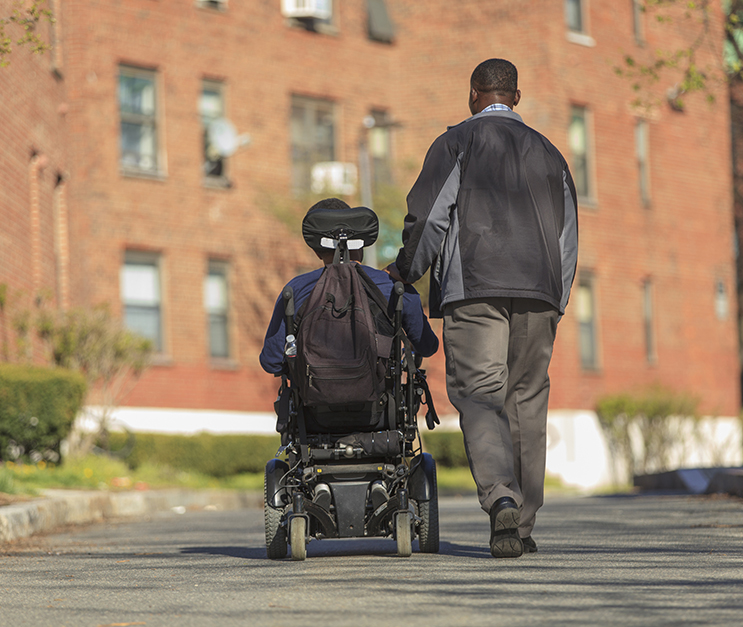It has been a couple of years since I last updated this blog. However, this topic has been on my mind and felt the need to write it out so I will be posting this to my blog. I have been active in the autism self advocacy movement for a very long time since high school. We have come a long way in making sure the voices of autistic people are included on issues that surround their lived experience. I am grateful for that progress since historically the prominent voices of autism were professionals and parents.
With that being said, I feel the autism/neurodiversity movement needs some improvement when it comes to accurately representing those on the spectrum. As many people are well aware, the spectrum is very diverse and autism affects each person differently. In social media as well as on movie and tv shows, I feel autism is portrayed in one of two ways. You see people who are low support needs. In which those who are highly masking and learned social skills by learning their neurotypical peers. They may drive, have a full time job and be married. These individuals may come across as socially awkward or rude to other neurotypicals. Support for them may look like meeting with a mental health counselor one time a week or needing work accommodations like altering their tasks. Their support needs are minimal. Then on the flip side, you have individuals who are non/minimally verbal who are considered high support needs. They may need full time care and need to cared for 24/7. They may have violent meltdowns and may not have safety awareness and would engage eloping behaviors. Oftentimes, their caregivers are their voices since they need help to advocate for themselves.
As someone on the spectrum whose experience does not fit into either low or high support needs, I feel that my experience is often not represented between the two sides . For those who don't know about support needs and how they relate to autism, the DSM assigns a level based on how significantly autism affects your daily functioning and how much assistance you require to be able to live a quality life. Level 1 means you require the least amount of support, level 2 means you require a moderate amount of support and level 3 means you require the highest amount of support.
In terms of my own support level, I consider myself to be level 2 or having moderate support needs. I know some people might look at me assume that I am low support needs because I am fully verbal and don't have an intellectual disability. However, I still need significant support in my daily life and qualify for developmental disability services based on substantial daily functioning limitations. I can't drive and have recently quit my full time job since it was too draining for me. I still struggle with making friends and social interactions despite having intense social skills training when I was younger. As a result, I have a limited social circle and need help in meeting new people. I am not a high masker (which is typically seen in those with level 1 autism ) as I stim in public carrying (carrying a fidget) and feel the constant need to move my body like jumping in public which is noticeable to people. I get stuck on particular topics and special interests where I sometimes I have to be redirected. When I was a child, I had developmental delays and did not have functional speech until I was about four years old. I had intensive support in the form of speech, occupational and behavioral therapy as well as having a paraeducator support for most of school career. If I were to live independently, I know I would need a lot of support from caregivers and coaches in order to be successful.
A lot of the self advocates with autism I come across online are typically late diagnosed/self diagnosed low support needs autistic adults. My issue with these self-advocates is that they sometimes forget that not everyone experiences autism the same way and they make statements that come across as insensitive or dismissive of my experiences as someone who lives with level 2 autism. For example, some self advocates describe that autism is a difference rather than a disability and it needs to be eliminated as a medical diagnosis. When I hear statements like this, I feel that my support needs get minimized and am afraid that it would become harder for me to access accommodations that I need. It is already hard for me to ask for help or feel that I will have my support needs taken seriously because I am fully verbal and do not have an intellectual disability. It is also stigmatizing to those people with level 1 autism that experience a mental breakdown due to heavily masking.
Another way I feel that some low support needs self advocate minimize my experience is that they use their successes (e.g. being married, driving a car) to bring themselves up while stigmatizing those who won't be able to those things because of their autism. I know that there are negative stereotypes associated with autism and not being able to marry and driving, but please don't discount those who are not able to drive and/or get married and have children due to their disability or personal preference. Knowing my disability and support needs, I know that having a family and driving would be challenging for me. Having a family or driving a car should not be used as a determinant of success for people on the spectrum. The superiority and one upping that occurs from those on the spectrum who have low support needs is called Aspie supremacy. Before 2013, Aspergers syndrome was an official diagnosis given to people who did not experience an early language delay in early childhood. Now it is merged with autism spectrum disorder and is considered to be level 1 autism. Every person with autism is capable of living happy fulfilling lives. Independence looks difference for everyone on the spectrum. To presume that having a full time job, getting married, having kids are the only valid ways of what success is ableist and fulfiling a capitalist narrative.
As someone who considers herself "in the middle" of the vast spectrum of autism, it is frustrating in trying to find community within autistic spaces. There are not too many presentations of people with moderate support needs. One tv series on Amazon prime, As We See It is the first tv show that I related to as it portrayed the struggles and feelings of three autistic adults who share an apartment but have an aide who checks up on them and assists them in various aspects of daily life. While the show has flaws, I felt it was the most realistic portrayal of autism as most characters that are typically portrayed are low support needs. It is shame that Amazon did not renew it for a second season which demonstrates how unplatable the experience of having medium support needs is to society compared to the experiences of autistics with low and high support needs. This is the reason why I wrote my second book The Revolving Door: The Untold Story of Disability Support. It is based on my own experience of having support people and the struggle when a caregiver quits and having to find the right match. I also wanted to show the struggle of Fiona getting her support needs taken seriously as a verbal person with autism.
In sum, the autism community needs to do a better job of including people who have moderate support needs. Too often, the discussion is focused on either parents who have children with high support needs that are unable to advocate for themselves or the low support high masking self advocates. I feel both sides minimize my experience living with autism and my support needs. People have their own experiences with autism and know their own support needs the best. We need to stop policing and minimizing other people's support needs online based on only getting a snapshot of their lives. Going beyond the support levels, everyone's experience with autism is unique and having one group of self advocates attempt to speak for everyone could lead to inaccuracies of the autistic experience and leaving other voices left out. There is the saying in the autism community if you met one person with autism you met one person with autism.


